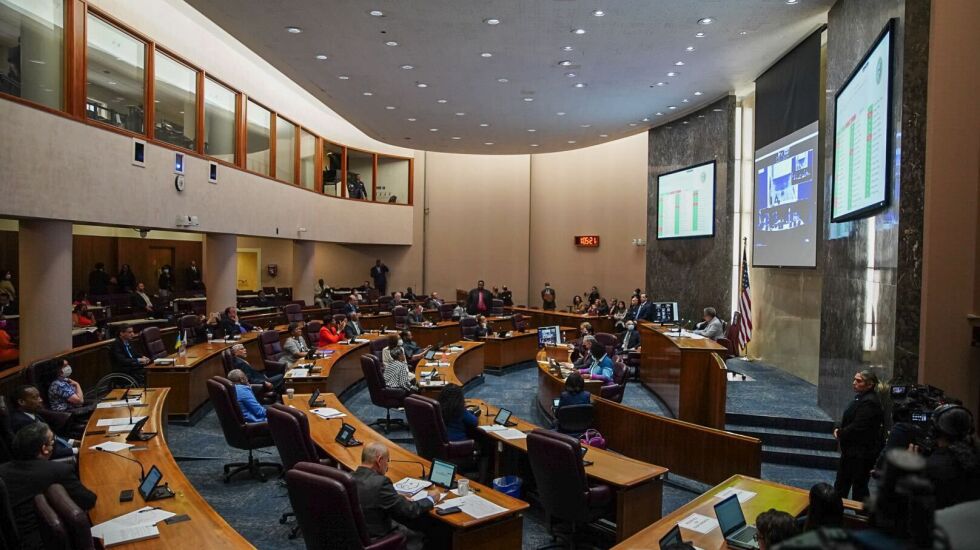
The Chicago City Council sees its share of turnover in every election cycle. But that doesn’t quite explain the generational changing of the guard going on this time.
It’s not just that 14 of its 50 members have either departed, opted to run for mayor or decided not to seek reelection. It’s who is leaving and the decades of institutional knowledge the Council is losing.
Two retiring and indicted alderpersons — City Council dean Edward Burke (14th) and deputy dean Carrie Austin (34th) — will be walking out the door with 83 years of seniority between them. The departure of four more longtime members — Leslie Hairston (5th), Howard Brookins (21st), Ariel Reboyras (30th) and Tom Tunney (44th) — will deprive the Council of 84 more years of experience.
Another 46 years of experience will be lost with the exits of George Cardenas (12th), Michele Smith (43rd), James Cappleman (46th) and Harry Osterman (48th).
There’s also the question of how progressive, aggressive and persistent their replacements will be, or whether the newbies will be moderate, passive and willing to be led by the mayor.
The answers will determine whether Chicago has another rubber-stamp Council or if it ends up with the strong-Council, weak-mayor form of government outlined in its municipal code.
Considering those stakes, it’s no wonder business leaders have created a big-money PAC to prevent the Council from turning sharply to the left and why United Working Families, a progressive group with close ties to the Chicago Teachers Union, has endorsed 18 Council candidates.
“People are tired of being left behind by the wealthy and political elite in this city. We have a real, generational opportunity for change … [with] a new City Council responsive to the will of the people that puts the needs of poor, working-class — Black and immigrant communities — first, instead of pushing them to the side like so many Councils and administrations have done before them,” said Emma Tai, executive director of United Working Families.
Tai called out Mayor Lori Lightfoot for what she described as a string of broken promises: to reopen mental health clinics closed by her predecessor; to tax high-end real estate sales; and to end what Tai called “sacrifice zones” — areas in the city where industry is often located and residents are left “bearing the brunt of asthma, cancer [and] environmental pollution.”
Veteran Council member Nick Sposato (38th) said he fears the departure of more experienced, collaborative and mainstream colleagues could pave the way for the election of what he calls “lefty loons” who want to defund the police and escalate Lightfoot’s parade of government giveaways, regardless of the cost.
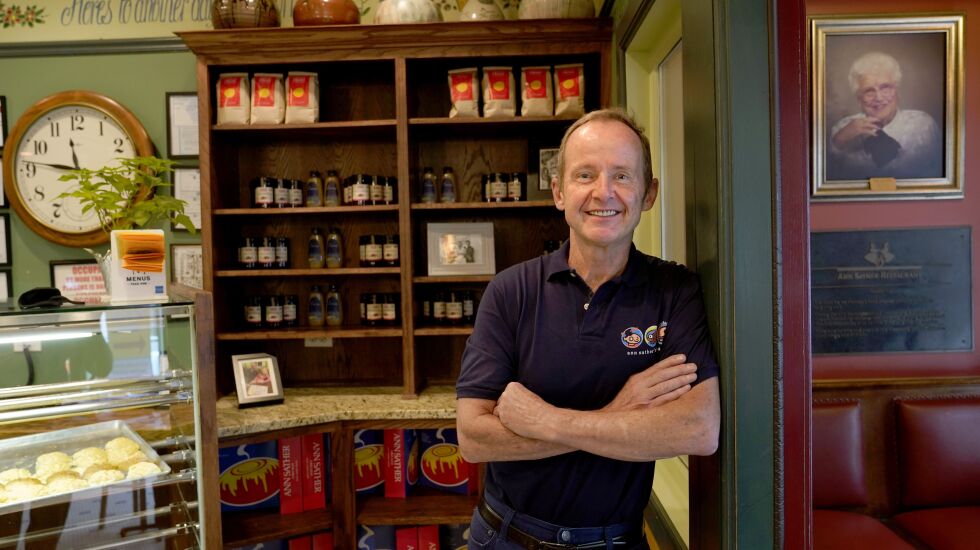
Tunney, owner of Ann Sather Restaurants and a former chairman of the Illinois Restaurant Association, said his concerns are a “little more sophisticated” than Sposato’s.
“The Council had been shifting a little bit to the left of center. I’m assuming it’ll be a little bit more. That seems to be the culture of the city at this point. That’s obviously a concern to me as someone who believes in ... economic development. We’ve got to make sure we’ve got candidates in there that understand the importance of a solid economy and a safe city balancing the needs of companies and workers alike,” Tunney told the Sun-Times.
“I’m gonna take an active role in trying to make sure that the Council and the next administration is respectful of the business community,” he said.
Retiring Ald. Harry Osterman (48th) said he is not concerned about the Council making a sharp left turn.
Public safety is “the No. 1 issue across every neighborhood” in Chicago, and “that’s not gonna change” — even though United Working Families wants to eliminate hundreds of vacancies in the Chicago Police Department’s $1.94 billion budget, as well as CPD’s newly enlarged advertising budget.
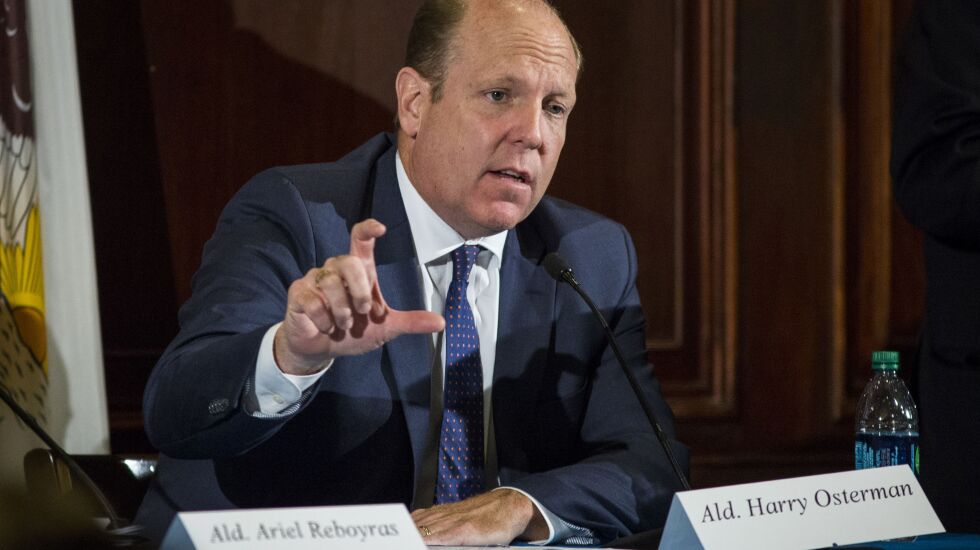
“I don’t think that there will be an effort to defund police. I think there’s gonna be an effort to address issues like mental health,” he said, along with affordable housing and homelessness.”
Osterman, who chairs the Council’s housing committee, said all those issues have grown since the pandemic, “but public safety, going into the next summer, is gonna be the No. 1 issue on everybody’s mind, as it is today.”
That means “the Council’s gonna have to work together. I believe that the voters who are gonna elect the new Council are gonna hold their aldermen accountable. The message that I’ve heard across the board is, ‘We want to make sure that CPD continues to reform, but also that we’ve got enough staffing across the city in communities to really reduce the violence.’”
Osterman is similarly unfazed by the institutional knowledge being lost — primarily because plenty of know-how remains.
“There’s a lot of aldermen who, I believe, will be reelected who’ve been around [long enough] to know how to work with people,” he added, citing specifically Ald. Pat Dowell, chair of the budget committee. He said she and other key leaders will be able to help the city wean itself from the flood of federal coronavirus relief funds.
“It takes you awhile to learn the job, to learn the departments and learn Council and legislation. It also is important that new aldermen, while they’re focusing on the urgent stuff in their community, are working collaboratively on the bigger issues,” Osterman said. “But there are lots of people — both within the Council and outside — to help give support, guidance and advice. They will come together. There’s been change before.”
There’s already been a change — and a bit of a youth movement — thanks to four aldermanic appointments in rapid succession.
Lightfoot made history by choosing 47-year-old Nicole Lee, the Council’s first Chinese American, to replace convicted 11th Ward Ald. Patrick Daley Thompson, nephew of Chicago’s longest-serving mayor (Richard M. Daley) and grandson of the second-longest serving mayor (Richard M.’s father, Richard J. Daley).
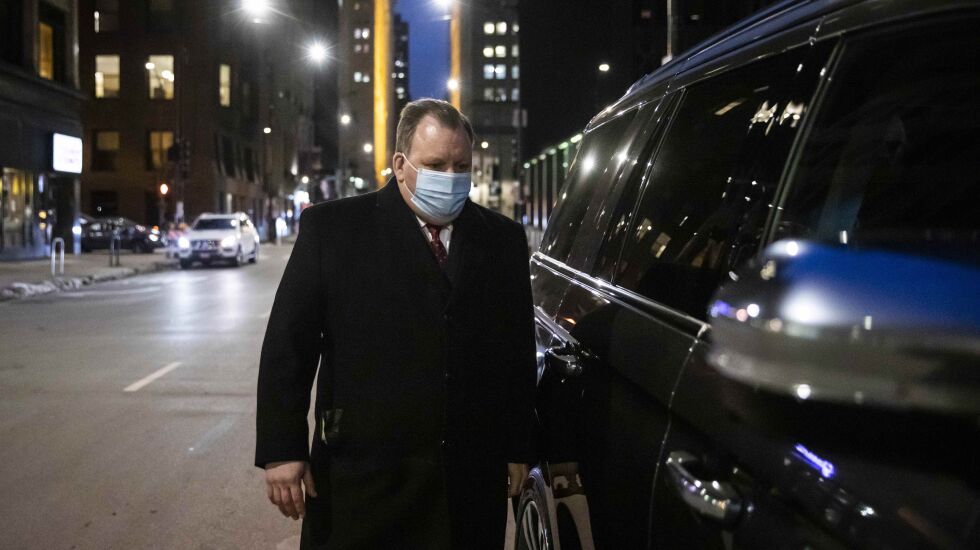
Monique Scott, 50, was appointed to fill the seat vacated by her brother, former Ald. Michael Scott Jr. (24th), who resigned to take a job with Cinespace Studios. Attorney Timmy Knudsen, 32, became the City Council’s youngest member when Lightfoot chose him to fill the opening created by the early resignation of Ethics Committee Chair Michele Smith (43rd).
And attorney Anabel Abarca, 37, was the mayor’s choice to replace her former boss, 12th Ward Ald. George Cardenas, when Cardenas, Lightfoot’s deputy floor leader, was elected to a seat on the Cook County Board of Review.
Even more change is likely with 37 of 50 ward races contested. That could set the stage for the electorate to send even more veterans packing.
Among the contests getting lots of attention is the proxy battle to succeed Burke in the 14th Ward.
That’s where Burke precinct captain Raul Reyes is squaring off against Jeylu Gutierrez, district director for Cook County Commissioner Alma Anaya, who is endorsed by mayoral challenger Jesus “Chuy” Garcia.
Other interesting races include the four-way battle in the 1st Ward, where first-term Ald. Daniel LaSpata is trying to prevent his predecessor, Proco Joe Moreno, from making a political comeback. Moreno lost his seat in 2019 after a string of scandals.
The 21st Ward has the most crowded race, with 14 candidates vying to replace Brookins.
That’s followed by 13 candidates for mayoral challenger Roderick Sawyer’s 6th Ward seat; a dozen competing to replace Hairston and 10 elbowing for position to fill the vacancy created by Osterman’s departure in the 48th Ward.
Ten council members are running unopposed, including Burnett, Brian Hopkins (2nd), David Moore (17th), Scott Waguespack (32nd) and Matt Martin (47th). Also unopposed is Bennett Lawson, Tunney’s chief of staff, who is running unopposed for that seat.
Tunney considered joining the crowded field of mayoral challengers before opting to retire from politics and a City Council he called “not a good place to work these days.” He pointed specifically to Lightfoot’s contentious relationship with the Council from the very start of her term.
“Under mayors — whether they were Daley or Rahm — there was just much more of a respect for each alderman and what their needs are for their community. I don’t think that collaborative relationship has been there” under Lightfoot, Tunney said.
No matter who wins the mayor’s race, Chicago’s chief executive will likely need to work with a younger, less savvy Council.
Burnett, a 28-year-veteran who has been a loyal supporter of every mayor he has ever served under, will be the new City Council dean.
Tai said she hopes the new Council will be far more progressive, paving the way for a legislative agenda filled with keeping promises Lightfoot broke.
“Inequality has only gotten worse. The rich are getting richer. Public goods are paid for by public dollars. Do those public dollars come from 6 miles-per-hour traffic cameras? Or do they come from taxing the obscene corporate profits that they’ve been making for decades off the labor of poor and working people?” she asked.
Pressed on how many of the races her organization can realistically expect to win, Tai said, “We’re trying to win all of them. … We need majorities, and we need the mayor’s office to pass legislation. We saw how easy it was over the past four years for the mayor to break her promises to us. So we’re shooting for a majority to make these things real for people who have deserved them for a very long time.”
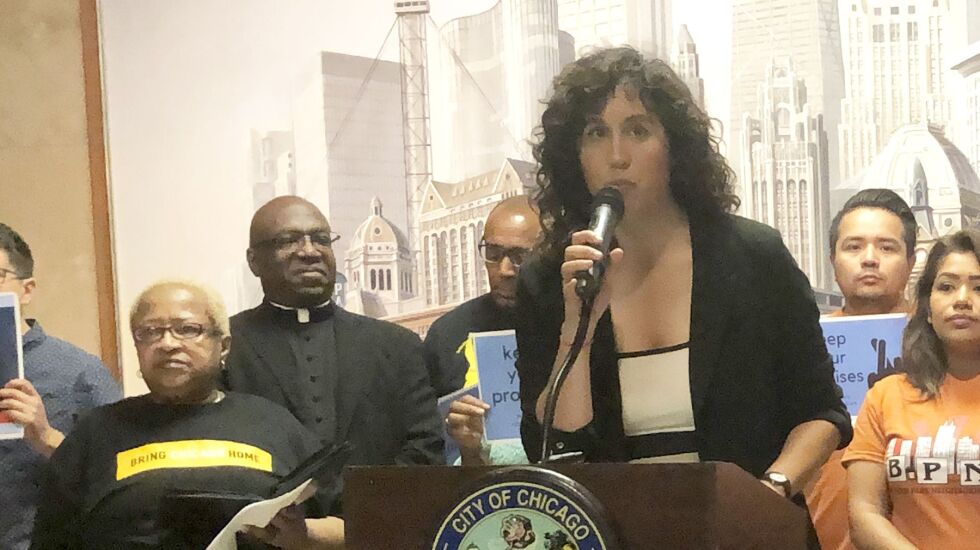
The Better Government Association has urged the City Council to declare its independence from the mayor.
So has former Inspector General Joe Ferguson, who branded Chicago the “only major city in the United States” that allows its mayor to dictate the lineup of Council committee chairs, who determine what legislation gets heard — or if it gets heard at all.
Ald. Anthony Beale (9th) has gone even further. Besides choosing its own committee chairs, the Council needs its own speaker, parliamentarian and attorney, along with a fully empowered Office of Financial Analysis, said Beale.
A veteran political operative — who asked to remain anonymous for fear of alienating alderpersons whose support he still needs — cautioned Chicago voters not to hold their breath waiting for a change in Chicago’s longstanding power dynamic.
“The City Council is gonna be young. It’s gonna be more progressive ideologically. It’s gonna have a lot less experience and not understand the system. [But] I don’t have any reason to believe the City Council is gonna get this huge independent streak. The Council has always been fairly acquiescent to the mayor,” the operative said.


.png?w=600)




